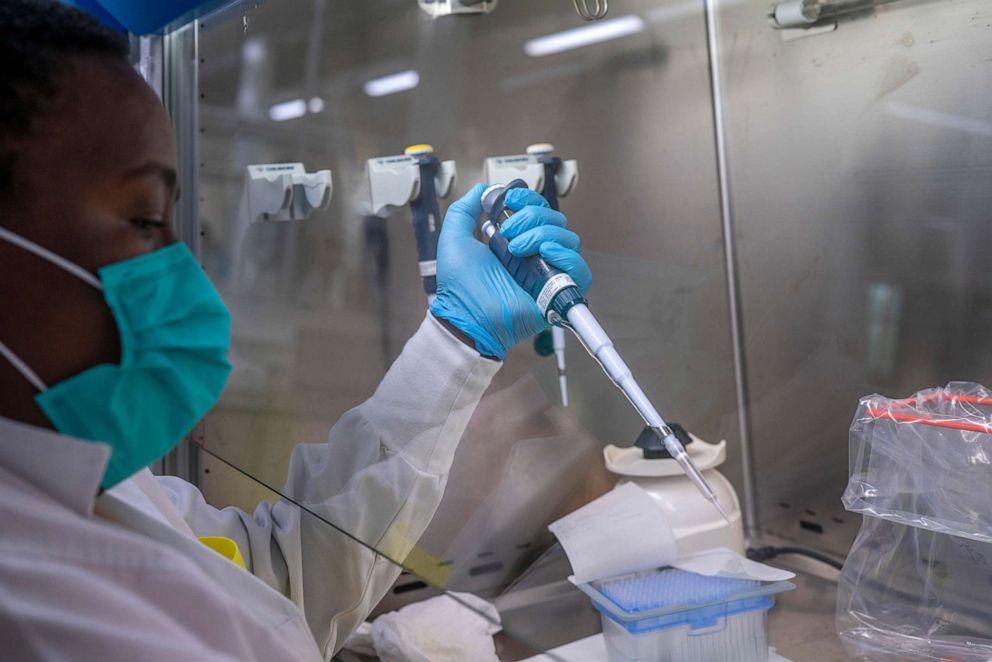'Signs of hope' as hospitalizations remain low in South Africa: WHO
The World Health Organization said Thursday that preliminary data indicates hospitalizations in South Africa remain low, offering "signs of hope," despite the fact that the omicron variant is spreading rapidly and weekly COVID-19 cases on the African continent have surged by 93%.
In the week ending on Dec. 5, southern Africa recorded a 140% hike in COVID-19 cases, the highest of any region on the continent for that period, mainly driven by an uptick in South Africa, according to the WHO. While researchers are still working to determine whether omicron is fueling the surge, the WHO said that emerging data from South Africa indicates the new variant may cause less severe illness. Data on COVID-19 hospitalizations across South Africa between Nov. 14 and Dec. 4 show that intensive care unit occupancy was only 6.3%, which the WHO said is very low compared with the same period when the country was facing the peak linked to the delta variant in July.

Furthermore, data from the same two-week period from one of the South African health districts most impacted by omicron show that out of more than 1,200 hospital admissions related to COVID-19, there were 98 patients receiving supplemental oxygen and only four on ventilators. The WHO cautioned that the data is "very preliminary with a small sample size and most of the people admitted to the health facilities were under the age of 40."
Since omicron was first identified in southern Africa in November, confirmed cases of the variant have been reported in 57 countries around the world. In an effort to prevent the spread of the new variant, more than 70 countries have imposed travel bans that are mainly targeting southern African nations, some of which have yet to report any omicron cases, according to the WHO.
"With Omicron now present in nearly 60 countries globally, travel bans that mainly target African countries are hard to justify," Dr. Matshidiso Moeti, the WHO's regional director for Africa, said in a statement Thursday. "Through the diligent surveillance efforts of African scientists, the new variant of concern was first detected on this continent, but it's unclear if transmission was taking place silently in other regions. We call for science-based public health measures to counter the spread of COVID-19. The travel restrictions come at the height of the end-of-year tourist season, ravaging Africa's economies, with a knock-on impact that is potentially devastating to the health of Africans."




